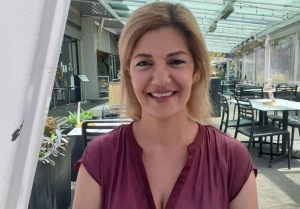Syrian, Iraqi refugees happy and settling well, survey finds
Syrian and Iraqi refugees who came to Australia as a result of the conflict in their homelands are overwhelmingly happy to be living here, want to become citizens and are optimistic about the future, new survey has found.
The latest stage of a longitudinal study into the settlement outcomes for the Syrian and Iraqi refugee families shows improvement over four years.
Carried out by the University of Technology Sydney (UTS) with the assistance of migrant and refugee settlement agencies, including AMES Australia, the survey found 90 per cent refugee families are happy to be living in Australia, 98 per cent say it is a good place to bring up children and 76 per cent said it was easy to make friends.
Australia’s humanitarian response to the war in Syria and Iraq saw a one off intake of 12,000 refugees from the region in 2016-17.
“Four years later, the study of settlement outcomes found they had been highly positive,” said lead researcher Professor Jock Collins.
It found 55 per cent of refugees surveyed who were looking for work had secured employment.
Sixty per cent of adult refugees from Syria, and half of those from Iraq and Afghanistan, reported that they spoke and read English well or very well.
More than 90 per cent of refugees found their neighbourhood a safe place to live and found the people in their neighbourhood friendly and 76 per cent found it easy to make friends, the study found.
Around 98 per cent of the respondents said their neighbourhood was a ‘good place to bring up children and a similar proportion thought that their neighbourhood had good schools.
The study found that young refugees, particularly, had achieved positive settlement outcomes.
“Young refugees were very impressive in their confidence and strong aspirations. Right from the start over three in four rated their educational experience as ‘very good’ to ‘excellent’,” the study report said.
“Two in three young refugees felt that they belonged ‘most of the time’ or ‘always’. Most young refugees had more than two friends, with more than half reporting that they had five or more friends from different backgrounds,” it said.
The study said regional settlement of refugee families has been very successful in most places, with 63 per cent of refugee jobseekers finding employment, and should continue.
It said that for those eligible, most (95 per cent) refugee adults and young people wanted to become Australian citizens.
The study found the major worry of refugee families is employment and their family members, most often aged parents, who were still back in the homeland.
“Family reunion in Australia is their main goal, contributing to the labour market and the economy, finding purpose and putting their skills and qualifications to good use was also echoed by the majority of those who are of working age,” the study said.
AMES Australia CEO Cath Scarth said the study showed the strength and capacity of Australia’s humanitarian settlement system.
“The positive outcomes described in the study are no accident. They are result of a sophisticated, flexible and well-resourced settlement program,” Ms Scarth said.
“The program allows the needs, barriers and aspirations of individual refugees to be addressed. This means we can work with refugees to build on the strengths and resilience they bring with them to support them to achieve their goals.
“This benefits individuals as well as Australia’s economy and society generally,” Ms Scarth said.
 Syrian refugee Norma Medawar, who arrived in Australia in 2014 fleeing the civil war in her homeland, said she now felt Australia was her home.
Syrian refugee Norma Medawar, who arrived in Australia in 2014 fleeing the civil war in her homeland, said she now felt Australia was her home.
“We have a great life in Australia now. We are safe, we have jobs and homes and our children can have bright futures,” said Norma, who recently visited Syria.
“While Syria will always be in my heart, Australia is now my home,” she said
The study says the key characteristics of the Syrian conflict intake are that most were Christians, and most were middle class.
Specifically, the majority of the Syrian and Iraqi refugee families (73 per cent) were Christian. In terms of education, 47 per cent of Iraqi refugee adults and 42 per cent of Syrians had prior tertiary education qualifications.
The report recommended better funding for refugee service provider agencies as well as individualised case management for refugee employment services.
It also recommended more support for refugees with a care responsibility and for volunteering initiatives.












